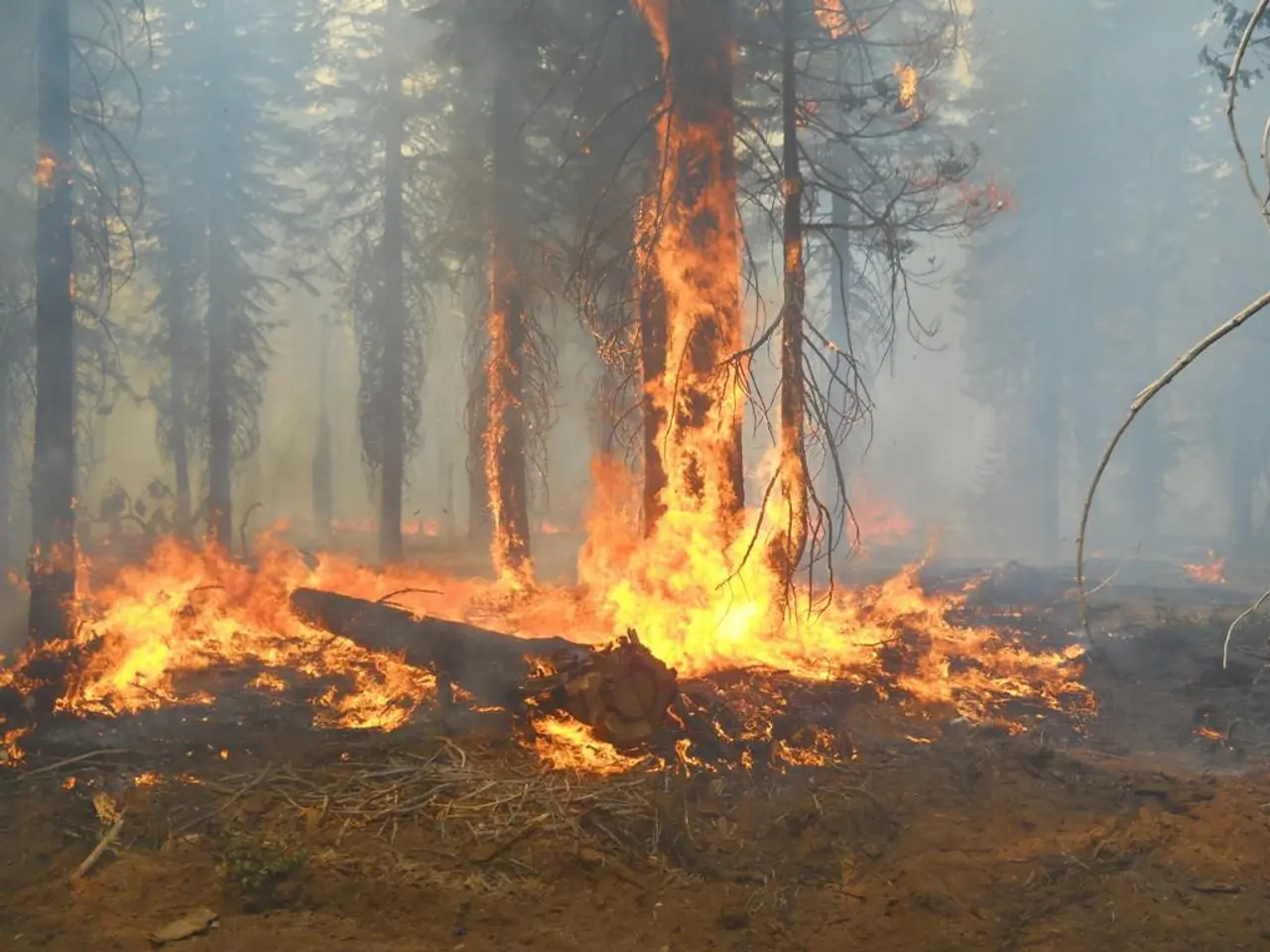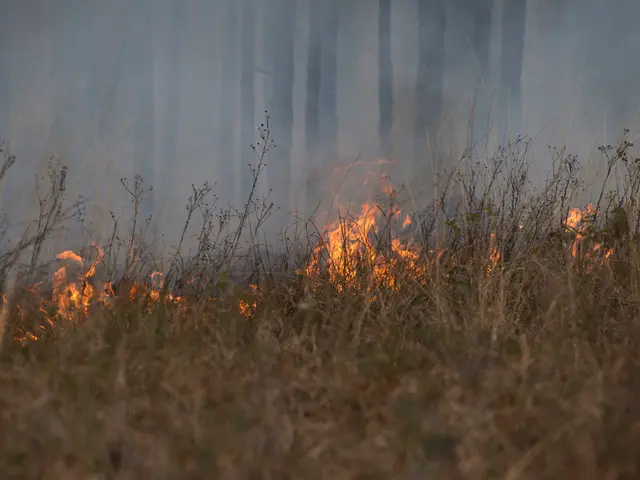Massive displacement due to lethal wildfires ravaging through several parts of Europe
Record-Breaking Heatwave Sweeps Across Europe
A severe heatwave, unprecedented in its intensity and duration, has been gripping Europe this summer. The heatwave, which has been linked to climate change, has resulted in record-breaking temperatures, wildfires, and numerous casualties.
According to the European Union's Copernicus Climate Change Service, Europe is warming faster than any other continent, with temperatures increasing at twice the speed of the global average since the 1980s. This heatwave is a prime example of this trend, with temperatures in some parts of Spain reaching 44C (112.2F) and even surpassing 46°C in parts of Portugal and Spain.
The heatwave has had a devastating impact. In a 12-city study, around 2,300 heat-related deaths were estimated during late June to early July, with older adults (65+) accounting for nearly 90% of fatalities. The heatwaves have also exacerbated wildfires, causing damage to ecosystems, property, and air quality.
The heatwave is due to a high-pressure system, known as a heat dome, which prevents cooler air masses from moving in. This system, combined with the ongoing rise in global temperatures due to fossil-fuel emissions, has created ideal conditions for the heatwave.
The first major heatwave lasted from mid-June to early July, ending on July 4. A subsequent heatwave began around August 10 and is still ongoing. In Fennoscandia (Norway, Sweden, Finland), a 14-day stretch of intense heat with consecutive days over 30°C broke multiple records, indicating the potential for prolonged extreme heat events in the region.
Wildfires are currently burning in multiple regions of Spain, including Castile and Leon, Castile-La Mancha, Andalusia, and Galicia. Firefighters are also battling several wildfires across Turkey, particularly in the northwestern province of Canakkale. Almost 1,000 members of Spain's armed forces are already helping to fight the wildfires.
The Mediterranean region is expected to experience hotter, drier summers due to global warming, according to scientists. This is evident in the ongoing heatwave, which has put a strain on critical infrastructure and healthcare systems, particularly in Nordic countries during peak holiday seasons.
This heatwave is a stark reminder of the impacts of climate change and the need for urgent action to mitigate its effects.
References:
- European Union's Copernicus Climate Change Service. (n.d.). Retrieved from https://climate.copernicus.eu/
- Meteo France. (n.d.). Retrieved from https://www.meteofrance.com/
- The Met Office. (n.d.). Retrieved from https://www.metoffice.gov.uk/
- World Meteorological Organization. (n.d.). Retrieved from https://public.wmo.int/en/our-mandate/climate/world-climate-report-2022
The ongoing record-breaking heatwave in Europe, linked to climate change, has sparked wildfires in multiple regions of Spain, with firefighters also battling similar blazes in Turkey. These heatwaves are predicted to become more frequent and severe due to global warming, particularly in the Mediterranean region, which is forecasted to experiences hotter, drier summers in the future. Such extreme weather events underscore the urgent need for scientific intervention to mitigate the impacts of climate change on our environment.








